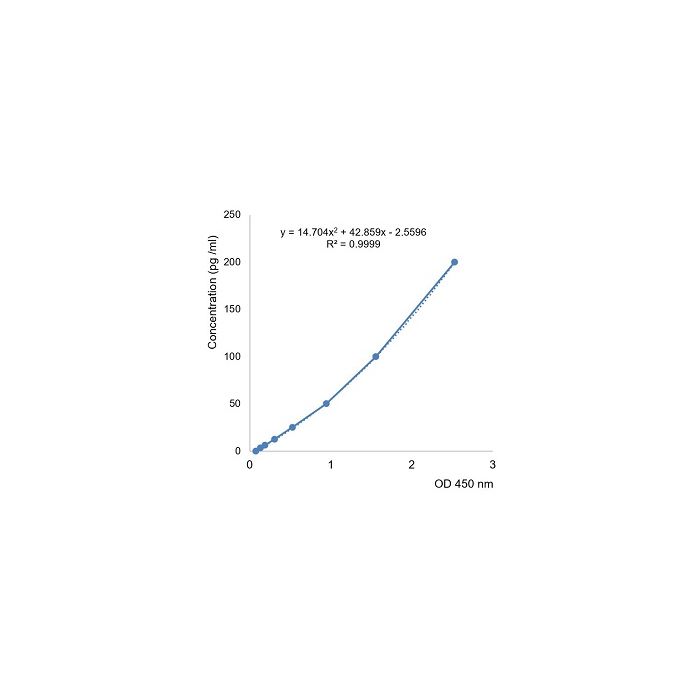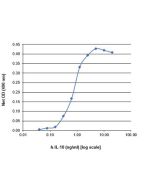Cookie Policy: This site uses cookies to improve your experience. You can find out more about our use of cookies in our Privacy Policy. By continuing to browse this site you agree to our use of cookies.
AdipoGen Life Sciences
IL-10 (human) ELISA Kit

| Product Details | |
|---|---|
| Synonyms | Interleukin-10; Cytokine Synthesis Inhibitory Factor (CSIF) |
| Product Type | Kit |
| Properties | |
| Application Set | Quantitative ELISA |
| Specificity |
Detects human IL-10 in serum, plasma and cell culture supernatant. |
| Crossreactivity | Human |
| Quantity |
1 x 96 wells |
| Sensitivity | 1.5pg/ml |
| Range | 3.125 to 200pg/ml |
| Sample Type |
Cell Culture Supernatant Plasma Serum |
| Assay Type | Sandwich |
| Detection Type | Colorimetric |
| Other Product Data |
UniProt link P22301: IL-10 (human) |
| Accession Number | P22301 |
| Shipping and Handling | |
| Shipping | BLUE ICE |
| Short Term Storage | +4°C |
| Long Term Storage | +4°C |
| Handling Advice |
After standard reconstitution, prepare aliquots and store at -20°C. Avoid freeze/thaw cycles. Plate and reagents should reach room temperature before use. |
| Use/Stability | 12 months after the day of manufacturing. See expiry date on ELISA Kit box. |
| Documents | |
| Manual |
 Download PDF Download PDF |
| MSDS |
 Download PDF Download PDF |
| Product Specification Sheet | |
| Datasheet |
 Download PDF Download PDF |
The cytokine Interleukin-10 (IL-10) is a key anti-inflammatory mediator. IL-10 limits the immune response to pathogens and microbiota and thereby prevents damage to the host while playing important roles in other settings such as sterile wound healing, autoimmunity, cancer and homeostasis. IL-10 is the founding member of a family of cytokines that also includes IL-19, IL-20, IL-22, IL-24, IL-26, IL-28A, IL-28B and IL-29.
IL-10 is expressed by cells of both the myeloid and lymphoid lineages, including macrophages, monocytes, DCs, neutrophils, mast cells, eosinophils and natural killer cells, in addition to CD4 and CD8 T cells and B cells. IL-10 is also produced by resident macrophages, such as microglia and cardiac macrophages. Some nonhematopoietic cells, including epithelial cells, also produce IL-10. Finally, tumor cells can also produce IL-10, which has been correlated with their ability to cause immunosuppression.
IL-10 has many functions. It inhibits cytokine synthesis, in addition, it stimulates the growth of mast cells and thymocytes and is an activator of B cells. More specifically, IL-10 as a key mediator of the anti-inflammatory response and inhibits IFN-γ secretion by Th1 cells, down-regulates the killing of intracellular pathogens, prevents the antigen-specific proliferation of human T cells by inhibiting the antigen-presenting capacity of monocytes through the down-regulation of class II MHC. The role of IL-10 is wide from intestinal inflammation, neuroinflammation and neurodegenerative diseases to infection or cancer.







